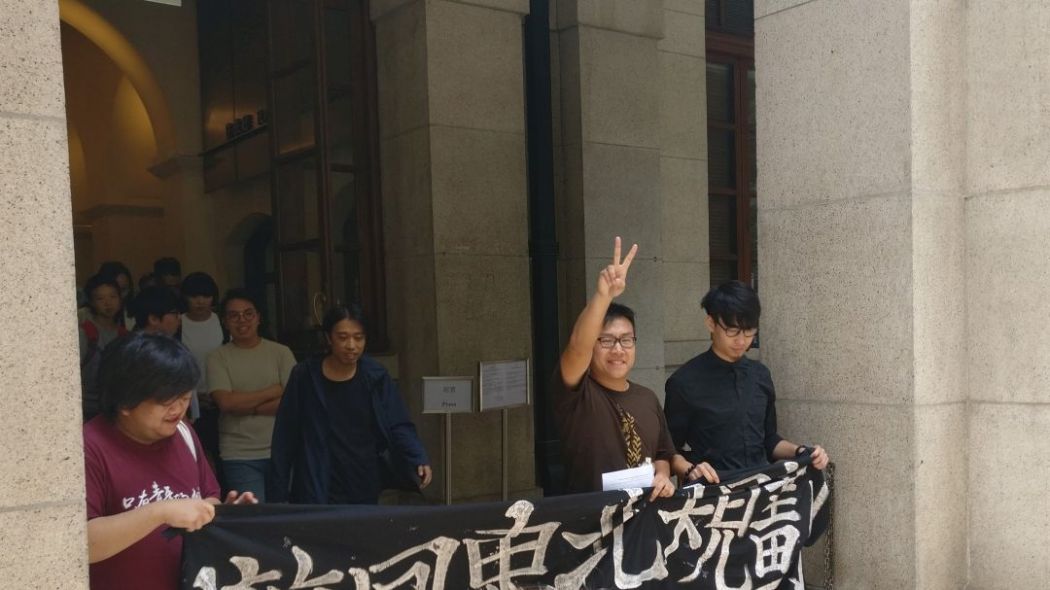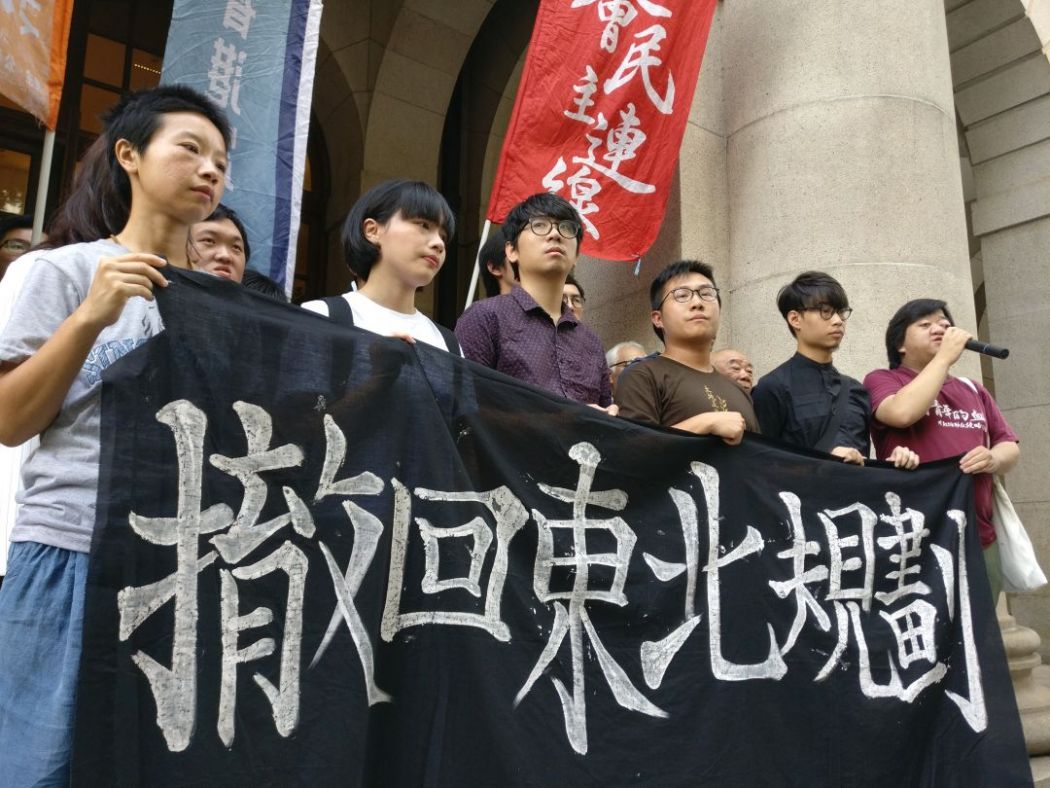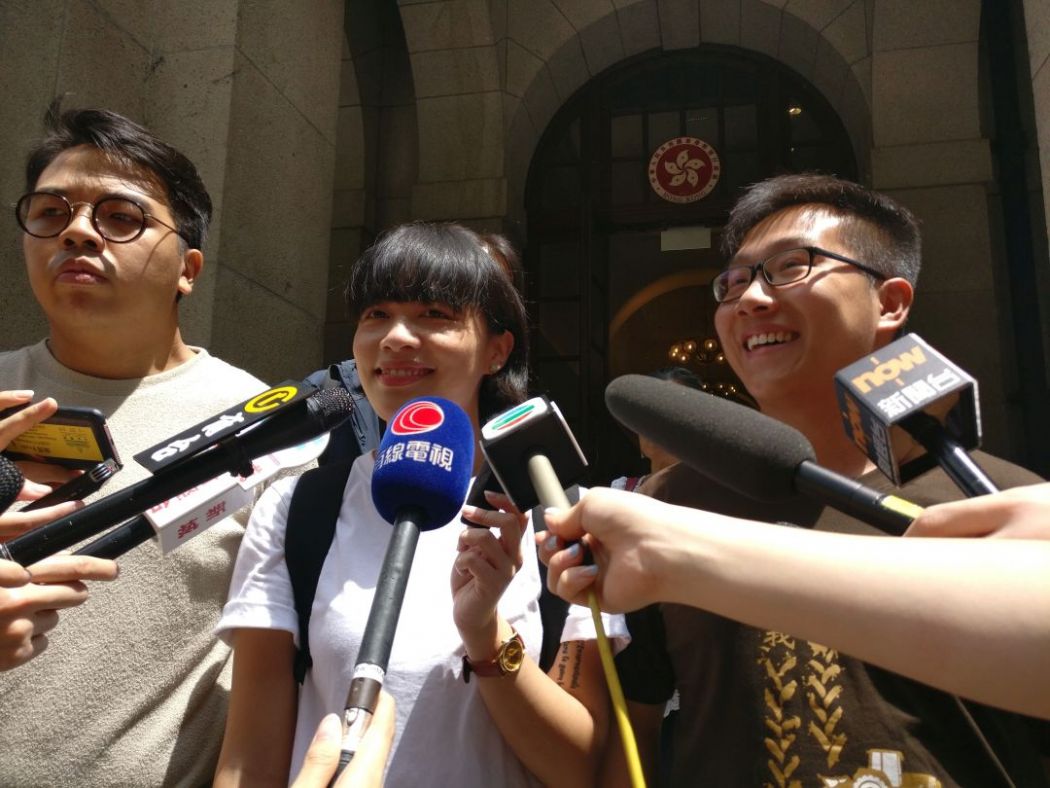Thirteen land activists who were jailed for protesting against the northeast New Territories (NENT) development proposal in 2014 won an appeal against their sentences at the top court on Friday.
The Court of Final Appeal ruled that their sentences will be reduced to the time already served, meaning that none of the activists would return to jail. The activists had been serving sentences ranging from eight to 13 months, and were granted bail pending appeal in February.
The 2014 NENT protest was triggered by then-Finance Committee chair Ng Leung-sing forcing a vote on spending HK$340 million on a controversial development plan. The activists were part of a group that stormed the Legislative Council building in protest.

“We do feel happy and excited because we can have our immediate release,” said Raphael Wong, one of the jailed activists, after emerging from a packed courtroom to applause.
Wong added that the court’s decision was reasonable and prudent, but he did not agree with the Chief Justice’s view that their actions constituted violence: “We call it force, not violence, because we [had] no intention at all to hurt anybody,” he said.
At the Magistrates’ Court, the activists were convicted of unlawful assembly and sentenced to community service over the clashes.
The Department of Justice later successfully sought harsher sentences, despite the defendants having already completed their community service. They were sentenced to eight to 13 months’ imprisonment by the Court of Appeal last August.
In March, the activists were granted leave to appeal to the Court of Final Appeal, on the grounds that they suffered “substantial and grave injustice” as a result of the appeal court’s irregular sentencing.
Sentencing guidelines
On Friday, lawyers for the activists argued that the Court of Appeal did not follow “existing or prevailing” sentencing guidelines that were available when the offence was committed in 2014.
Instead, the appeal court followed a rule it laid down in 2017 – which led to jailing of the trio of Umbrella Movement activists – which stated that, in violent cases of unlawful assembly, it was necessary to emphasise deterrence and punishment during the sentencing stage.
The activists argued that the new sentencing rule could apply to future cases, but should not be applied retroactively.
“The Court of Appeal clearly would not have increased the sentence so drastically, had they not applied their own principles and applied them immediately,” said barrister Martin Lee, who represented five of the appellants.

Chief Justice Geoffrey Ma asked multiple questions on the element of violence in the case.
“There seems to be an attempt on the part of the appellants to minimise the violence of this case,” Ma said. “Violence is always regarded as serious.”
“I would certainly accept that the magistrate was trying to play down the violence. But the Court of Appeal was fixated on that… and attached too much weight,” Lee replied.
Other barristers appearing on behalf of the activists, including Philip Dykes and Hectar Pun, argued in favour of the original sentence of community service. Dykes said community service was “lenient” but was not manifestly inadequate, so the sentence should not have been overturned.
The Secretary for Justice’s lawyer David Leung argued that the only appropriate sentence was jail time. The case was more serious than other precedents because the activists had stormed the Legislative Council building while the legislature was in session, Leung said.
Ma announced the ruling after about two hours of arguments. The full judgment will be handed down at a later date.
Ruling a ‘compromise’
Solicitor Ng Gene-bond, who represented six of the defendants, told HKFP that the court’s decision took a middle path, which was harsher than community service but less harsh than 13 months’ jail time.
“I think [the court’s view] is, this case involves violence so there must be imprisonment, but since they have already served their time so it’s acceptable,” Ng said. “It’s a compromise option.”

Ng noted that this aspect of the case was clearly different from the CFA’s judgment on the trio of Umbrella Movement activists in February, where the court said imprisonment itself was an error.
When asked about future plans, Raphael Wong said that he will be more cautious in protests in light of the new sentencing rules.
“The new guidelines will impose more obstacles and limitations on our movement. My expectation is, our future protests should be better organised and more disciplined, so as to be consistent with our principles of non-violence,” Wong said.
He added that the activists showed responsibility for their actions: “We never begged for mercy: from the first instance hearing to now, none of us said we regretted our actions, or said we were sad and disappointed.”
The 13 protesters are Raphael Wong Ho-ming, Ivan Lam Long-yin, Lau Kwok-leung, Billy Chiu Hin-chung, Kwok Yiu-cheong, Wong Kan-yuen, Willis Ho Kit-wang, Kole Chow Koot-yin, Leung Hiu-yeung, Leung Wing-lai, Chu Wai-chung, Yim Man-wa and Chan Pak-shan.
